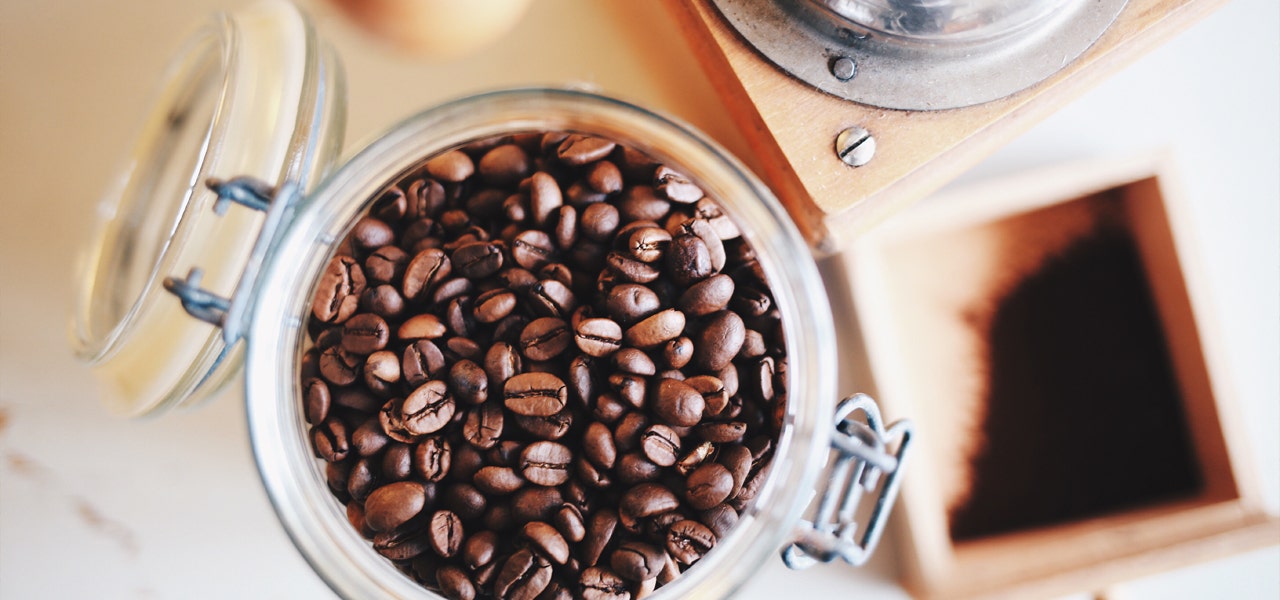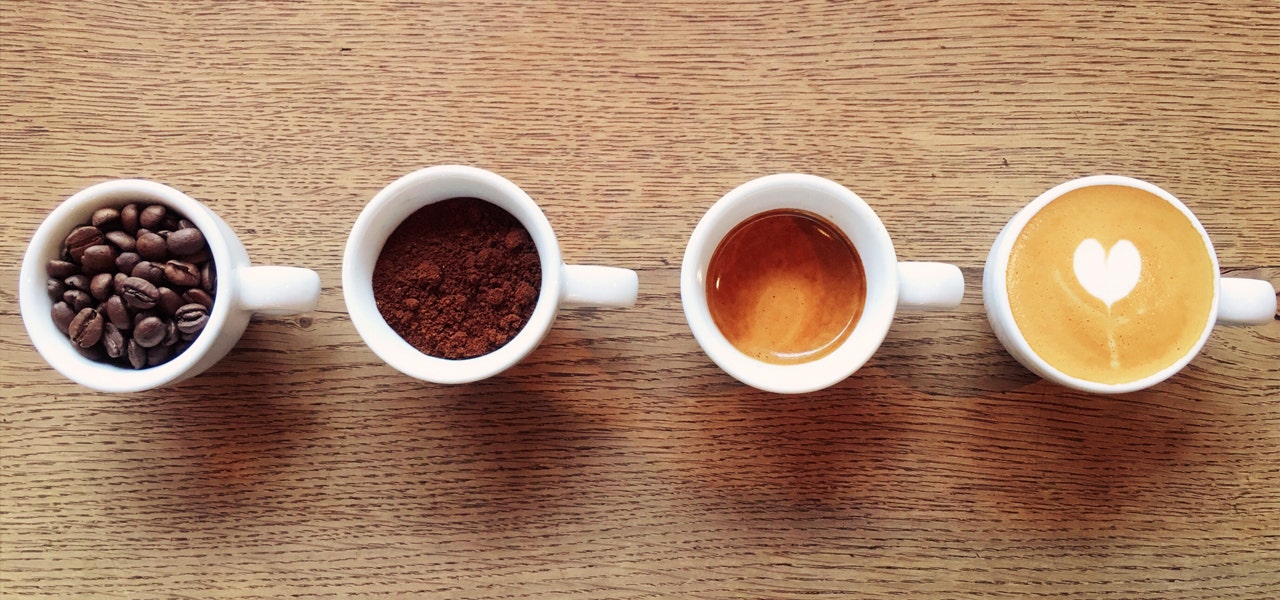Iced latte. French pressed. Nitro. Cold brew. Americano. Matcha. Chai. Earl Grey. Iced tea. Energy drinks. Soda. Cacao. Guarana. Whatever way you take it, caffeine has become a staple in most people’s mornings.
In fact, for many, caffeine has also become a habit, a dependency and sometimes even an addiction with negative health impacts. So much so that we actually have a National Caffeine Awareness Month. Why? Because although we’ve known that we should consume caffeine responsibly since the FDA first put a warning label on it back in 1912, many of us still don’t fully understand:
- What is caffeine?
- What’s my caffeine limit?
- What are the health risks?
Let’s break it down together here. And, don’t panic – this doesn’t mean you aren’t allowed to drink coffee anymore! In bringing awareness, we simply aim to offer insight on caffeine’s chemical reactions, addictive properties, health risks and more. Spoiler alert, if you’re up to it, you can also discover how to feel alert and have lasting energy without caffeine.
What Is Caffeine?
Simply put, caffeine is a stimulant. It increases activity in the brain and central nervous system, making the body feel more alert, awake and energized. Caffeine is naturally occurring and is found in more than 60 species of plants, including:
- Coffee beans
- Cacao
- Kola nuts
- Tea buds
- Yerbe mate
However, caffeine can also be synthetically produced and added to packaged and processed food and beverage items (like the soda and chocolate bars that are ever-so-tempting).


Why Do We Love it so Much?
Caffeine produces a chemical reaction in the body. It releases dopamine and increases the circulation of cortisol and adrenaline – the chemicals that are essentially the body’s alarm clock but that can also produce stress and anxiety. It is estimated that nearly 90% of adults today regularly drink caffeine to increase focus and motivation to work.
The most popular form of caffeine consumption comes from drinking coffee. Coffee is especially appealing for its aromatic properties, distinct taste and delicious variations, not to mention the warming ritual of drinking it each morning. However, what is a harmless and pleasant pick-me-up can quickly turn into a daily necessity and, yes, addiction.
A dependency on coffee and caffeine in general can happen quickly due to the chemical changes in the brain that can result from sustained consumption. Also, you can develop a tolerance where you need more and more caffeine to produce the same level of alertness.
How Much Caffeine is Too Much?


There is no definitive answer on caffeine limits since people have individualized health and wellness needs. Some people should not consume caffeine at all, so any amount will be too much. This often includes children, women who are pregnant or breastfeeding, and those with heart disease or high blood pressure.
Additionally, people with anxiety or who are on anti-anxiety medications may manage better without caffeine. As mentioned, caffeine increases cortisol and adrenaline levels. If you are prone to stress and anxiety, caffeine can make it worse.
For the average healthy adult, trusted sources like the Mayo Clinic recommend keeping daily caffeine consumption below 400 milligrams, which equals about four 8-ounce cups of brewed coffee. However, because of the tolerance that builds with regular consumption, many adults end up consuming much more or opting for stronger and more potent forms of caffeine. For example, a 12-ounce nitro cold brew can contain over 200 milligrams of caffeine!
Caffeine Health Risks You Should Know
The most obvious health risk of caffeine is its addictive properties, which means that it influences our brain chemistry. Here’s how:
When caffeine is consumed, it is first absorbed through the small intestine and dissolved into the blood stream. However, the chemical makeup of caffeine is both water and fat soluble. So, it doesn’t just enter our blood – it enters our brain (the fattiest organ in the body). In this way, caffeine can penetrate the blood-brain barrier and have long-term effects on our brain chemistry.
Too much caffeine can also cause a wide range of unpleasant side effects. These include:
- Restlessness/shakiness
- Nervousness
- Headaches
- Dizziness
- Dehydration
- Heart palpitations/irregular heartbeat
- High blood pressure
- Chest pain
- Sweating/nausea
- Anxiety
- Insomnia
Although extremely rare, caffeine can be toxic and even deadly when consumed at considerably high amounts. Serious cases of caffeine toxicity have led to seizures and life-threatening heart arrythmias.
Natural Alternatives to Help You Feel Awake Without Caffeine
While caffeine is generally consumed for its energy-giving properties, one of the most common risks of too much caffeine is trouble sleeping – leading to the need for more caffeine the next day. This is a dangerous cycle. The easiest solution (and yet what seems like the hardest to achieve) is getting better quality sleep.
There are many factors that can interfere with sleep outside of caffeine. Try being mindful of what you put in your body before you go to sleep, limiting blue light exposure, adjusting your bedtime, and creating a dark, quiet, and cool environment.
You can also try incorporating these caffeine-free tips to feel more alert and energized throughout the day:
- Water: Stay energized by staying hydrated! Dehydration leads to fatigue because it impacts the flow of oxygen to the brain and causes your heart to work harder to pump oxygen.
- Movement: Exercise releases endorphins, which boost activity in the brain. Going for a walk or stretching in the morning or when you hit that afternoon slump can help give a natural boost of energy.
- Sun Exposure: Exposure to natural sunlight first thing in the morning helps set your circadian rhythm and suppresses melatonin secretion in the body.
- Breakfast: The body fasts during sleep cycles. In order to restore glucose levels, breakfast is essential. Eating a high-fat, high-protein meal rich in carbohydrates or natural sugar can make you feel more awake than caffeine does!
- Cold Exposure: A splash of cold water on the face or ending your morning shower with a few seconds of cold water can offer an invigorating and refreshing sensation that boosts lymphatic flow and wakes the body and mind up.
- Beverage Alternatives: Still crave that special morning beverage as part of your routine? Alternatives like warm lemon water or caffeine-free herbal teas such as organic roasted dandelion root are fantastic replacements offer amazing health benefits.
Sleeping on an organic mattress with the right firmness for your unique sleep needs can also result in more restful and restorative sleep. The more rested we are in the morning, the less likely we are to reach for a caffeine source.
 BABY
BABY  KIDS
KIDS  ADULT
ADULT  LEARN
LEARN  STORES
STORES 